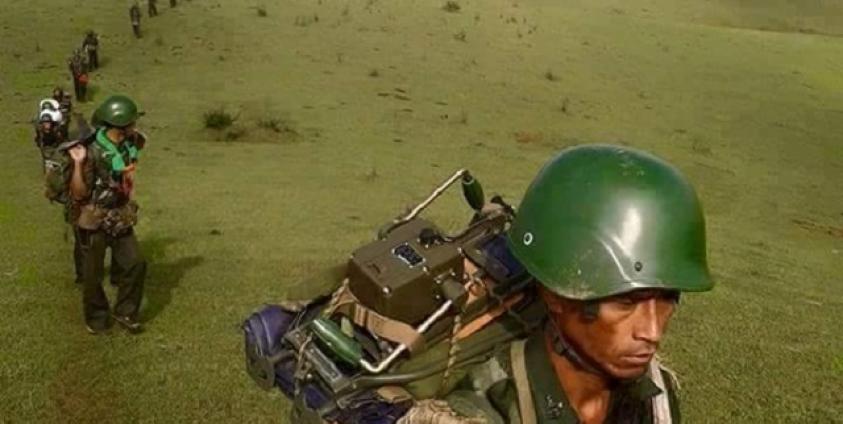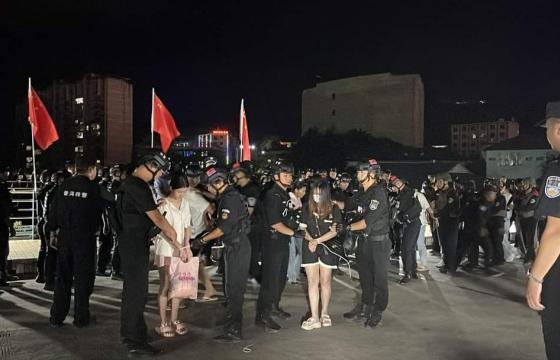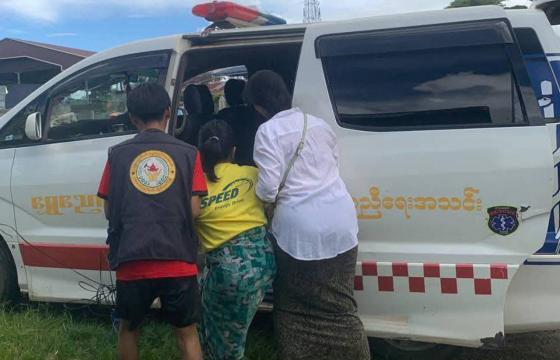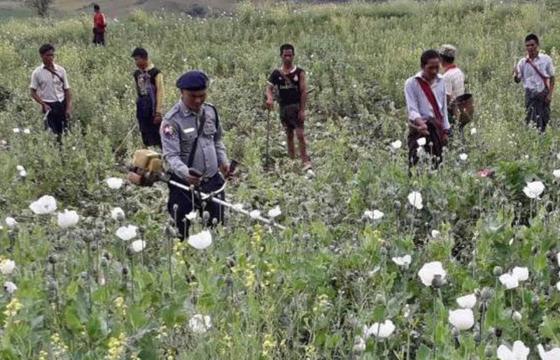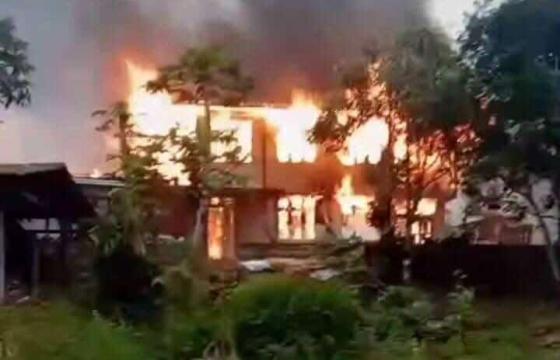Over 500 residents fled from their homes in northern Shan State last week after the Burma Army launched air strikes against positions held by the Shan State Progress Party/Shan State Army (SSPP/SSA) in Kyaukme Township.
The SSPP/SSA military camps situated in the mountains and hills near Pang Lawt, Nam Wine, Atgyi, Homain and Naungkan villages under Pon Wo-Haikwi Village Group in the southwest of Kyaukme were attacked several times by Mi-35 combat helicopters on 13 May, according to a commander from the SSPP/SSA.
An information officer based at the SSPP/SSA’s headquarters said: “Skirmishes broke out with us on the 3rd, 6th, and 12th [May] in the northern Haikwi area. Today, they attacked our men with two helicopters that came from Lashio. They were still attacking us from the afternoon till nightfall.”
Sai Aik Laung, a 40-year-old resident of Naung Pain Village, said over 500 local residents fled to Naung Pain and Kyaukme due to the skirmish between the SSPP/SSA and the Burma Army.
An information officer from the SSPP/SSA based at the group's Wan Hai headquarters said that both groups reached an agreement over the military tensions in areas located north-east of its headquarters and west of the Salween River. He predicted in an interview last week said that that it was unlikely that there would be further clashes between the SSPP/SSA and government forces.
When he was contacted by S.H.A.N. the SSPP/SSA information officer said: “Tangyan-based Tactical Operation Commander Colonel Nay Lin Aung and three local commanding officers [from the Burma Army] and our Secretary 2 Colonel Sai Su conducted a joint field operation yesterday. We were in charge of security [for the joint operation]. This area is peaceful now. We have asked the local residents who are worried about the war to return back home.”
The Lashio based North Eastern Commander of the Burma Army told the SSPP/SSA on 22 April and again on 27 April to clear its camps along Loi Say to Loi Leng ridge in Tanyang Township and allow joint field inspections of their camps.
Translated by Thida Linn


